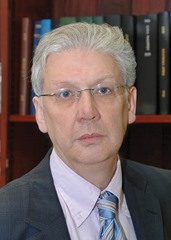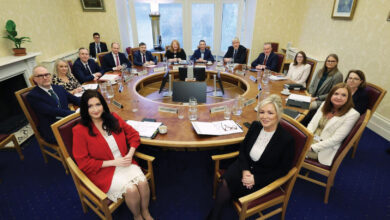Protecting Northern Ireland’s reputation
 Professor Paul Bew explains how accepting the Defamation Act would enhance both freedom of expression and the province’s economic image.
Professor Paul Bew explains how accepting the Defamation Act would enhance both freedom of expression and the province’s economic image.
The recently passed Defamation Act at Westminster has a number of key features. It clarifies the defence of good journalistic practice and honest opinion strikingly identified in the famous Reynolds case. It brings an end of libel tourism: the phenomenon by which litigants sued in London, a city with whom they often had openly a small connection, because the libel law was so favourable. Libel tourism attracted much criticism in the United States and, indeed, was satirised in popular TV shows like ‘The Good Wife’.
At the heart of the Act is an attempt to legitimise freedom of expression. It remains the case that an individual’s right to protect their reputation is still respected. Indeed, the hope is that libel law will become cheaper and quicker to operate for those who are genuinely offended. There are many difficult technical connections associated with this Act, particularly when it comes to the internet, but the fact remains that it represents an all-party consensus on the issue which has strengthened considerably since Lord Lester first introduced his own Bill on the subject in 2010.
Speaking as an academic, the most personally satisfying aspect of the Act is that which deals with academic freedom. It has become clear that something has to be done to protect academics in the humanities and sciences who usually have only modest personal means but whose research may be driving them to say something that is controversial about powerful business, or indeed political, interests.
The evidence of a chill factor in this terrain has been obvious for some time. Now academics who submit their work to the discipline of proper peer review will have the protection of qualified privilege.
As someone who has worked on this issue for some years sitting on the select committee of both houses chaired by Brian Mawhinney, another Northern Irishman, I was genuinely surprised when the news broke that the Assembly had decided, in effect, to ignore the existence of a new libel law in the United Kingdom.
Everyone knows for example that the Assembly has the right to do this. And everyone knows that on an issue like gay marriage there was a difference of opinion between the United Kingdom and much opinion in the province. But was this true of the libel law?
Most unionists instinctively favour equality of citizenship throughout the United Kingdom and surely this means the same rights to freedom of expression? Most republicans and nationalists consider themselves to be very strong on the human rights agenda and the British Government explicitly defends the new libel law as bringing Britain closer to the European Convention on Human Rights.
To take one important negative local consequence, there has been much recent comment on the declining status of world league tables of British provincial universities as international competition intensifies. Anyone who studies Times Higher Educational Supplement’s league table of world universities will see that the universities in the province are, to say the least, not immune.
What signal does it send out to a clever young academic thinking of coming to work in Northern Ireland if the local Assembly does not think it worthwhile to make sure that they have the same freedom to express controversial opinions as other academics in the United Kingdom?
This is a matter of no small importance. The struggle to maintain the competitive position of our universities is important for the long-term economic health of the province.
The Northern Ireland judiciary is also left in an uncomfortable position being asked to operate a libel law which senior legal opinion in the rest of the United Kingdom regards as antiquated. There will inevitably be talk of human rights challenges in the courts. It would be much better if the parties in the Assembly gave themselves the time to reflect on this matter and to reconsider.
Paul Bew is a professor of politics at Queen’s University Belfast and a crossbench peer.





